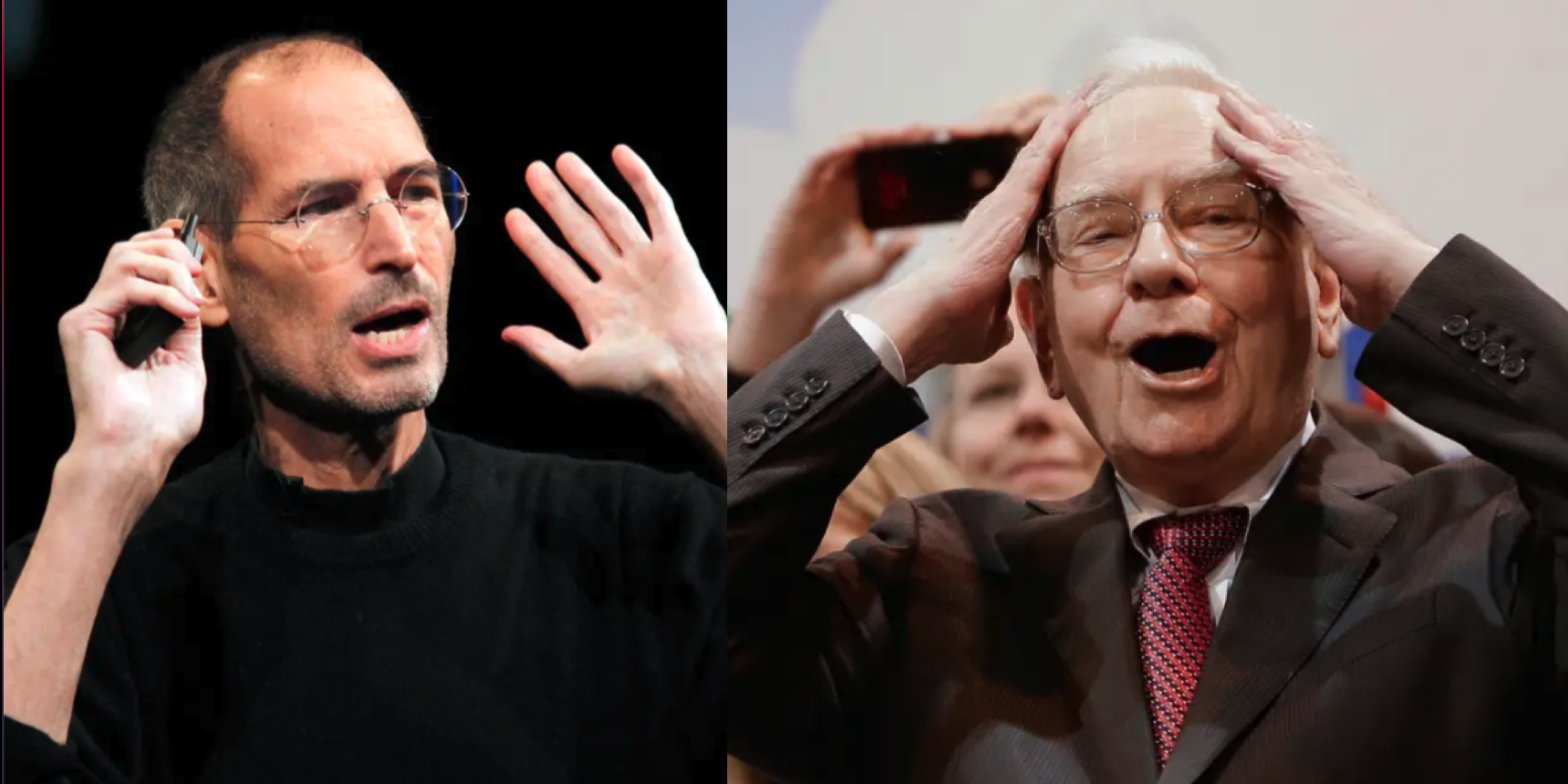Steve Jobs refocused Apple on a few key products, paving the way for its phenomenal success. Warren Buffett, a big Apple investor, also concentrates his time and money where it’s best spent. Here’s a look at Jobs and Buffett’s shared embrace of focus, and why it’s paid off for them. Loading Something is loading.
Thanks for signing up!
Access your favorite topics in a personalized feed while you’re on the go.
Warren Buffett counts Apple as the cornerstone of his stock portfolio. One reason he prizes the tech titan is its laser-sharp focus — a key element of Steve Jobs’ business philosophy that Buffett also embraces.
“People think focus means saying yes to the thing you’ve got to focus on,” Jobs once told former Nike CEO Mark Parker, according to Carmine Gallo, the author of “The Innovation Secrets of Steve Jobs.”
“But that’s not what it means at all,” the late Apple cofounder continued. “It means saying no to the hundred other good ideas that there are. You have to pick carefully. I’m actually as proud of the things we haven’t done as the things I have done.”
Jobs put his preaching into practice when he rejoined Apple as CEO in 1997. He slashed the company’s product range by 70% in a matter of months, enabling Apple to devote its design and marketing expertise to only its very best ideas.
Buffett trumpeted Apple’s extreme specialization during a CNBC interview in 2018. “Here’s a company with, whatever their earnings are, $60 billion, and you can put all their products on a dining room table.”
The investor and his team showed their admiration for Apple by plowing over $30 billion into the company between 2016 and 2018. The tech stock has more than quadrupled in price since then, and currently trades at close to a record high, largely due to a handful of hit products such as the iPhone and AirPods.
Buffett’s company still owns 5.8% of Apple, a stake worth more than $175 billion as of Friday’s close. Berkshire’s market capitalization is $746 billion, meaning almost a quarter of the conglomerate’s total value is tied up in a single stock it owns.
Like Jobs, Buffett has repeatedly underscored the vital importance of focus. The investor has been quoted as saying, “The difference between successful people and really successful people is that really successful people say no to almost everything.”
Buffett has made focus a priority at Berkshire. He has structured the conglomerate as a vast, decentralized web of autonomous businesses, as that allows him to practice “delegation just short of abdication” and zero in on what he does best: allocating capital.
The stock picker’s roughly $330 billion stock portfolio is also highly concentrated, with five companies including Apple and Coca-Cola accounting for more than 75% of its total value. Moreover, he aims to invest solely in businesses and sectors that lie within his “circle of competence” or understanding, and turn down all but the best opportunities.
Buffett has “a unique ability to say no to all manner of investment promoters, bubble profiteers, and well-meaning but deluded brokers,” author Roger Lowenstein writes in “Buffett: The Making of An American Capitalist.”
The Berkshire chief’s business partner, Charlie Munger, is even more ruthless in rejecting opportunities, earning him the nickname “The Abominable No-Man.”
Apple’s intense focus on a select few products is a key part of Jobs’ legacy, and has paid huge dividends over the years. Similarly, Buffet has focused his time and money carefully for decades, which has translated into outsized profits from betting on the likes of Apple.
